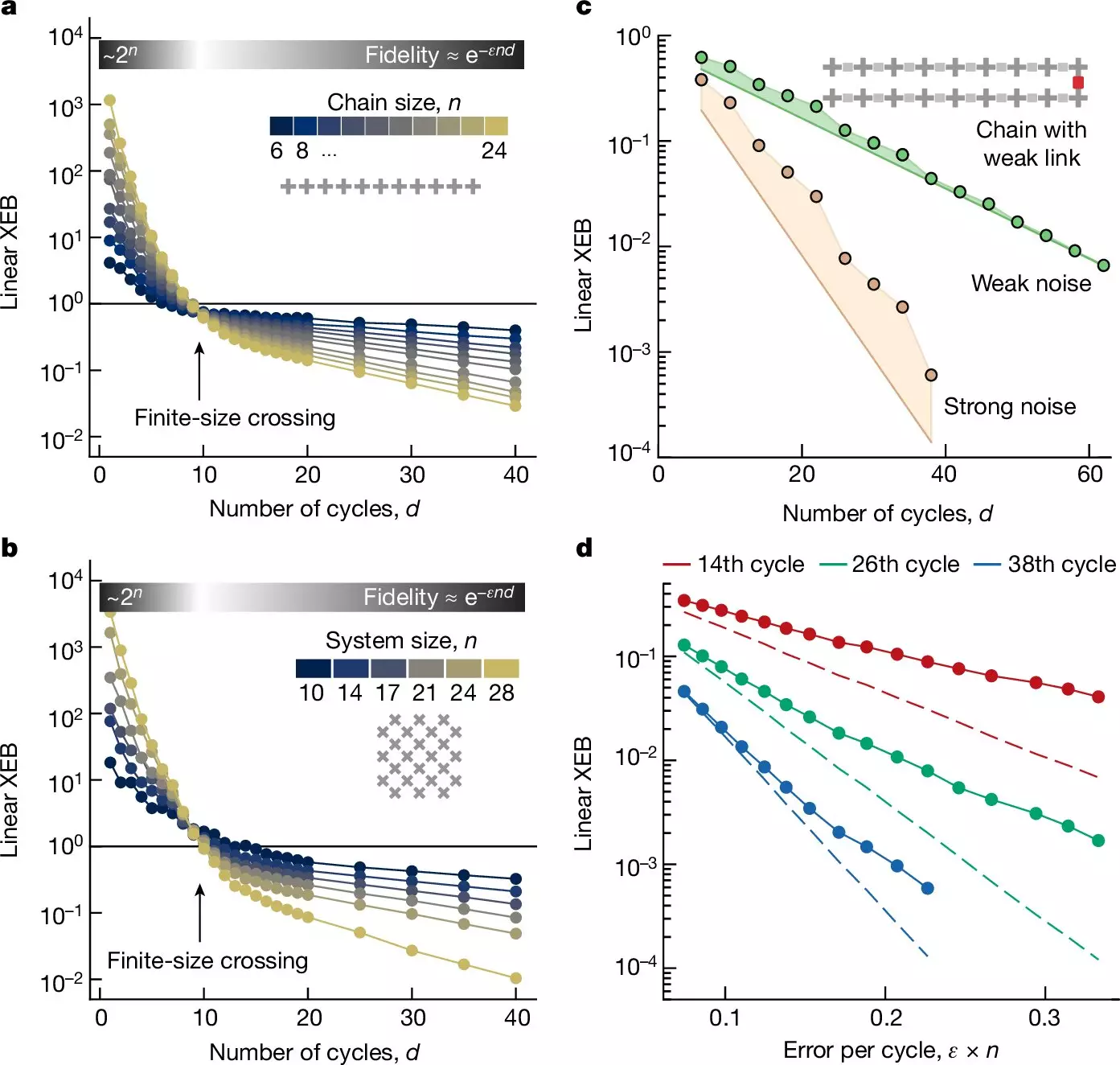Advancements in technology often hinge on overcoming significant challenges, and in the realm of quantum computing, noise reduction has emerged as a pivotal area of focus. Recently, a team of engineers and physicists at Google Research achieved a noteworthy milestone by demonstrating that their sycamore quantum chip can outperform classical computers when subjected to optimized conditions that remarkably limit noise interference. This breakthrough, detailed in their publication in the prestigious journal Nature, highlights the promise of quantum computing on a practical level, reigniting interest in its potential applications across various fields.
At the core of this research lies the concept of Random Circuit Sampling (RCS). Here, the quantum computer is tasked with generating a series of random numbers—essentially a test to measure the computational prowess of quantum systems compared to classical counterparts. Historically, quantum computing was heralded for its promise to execute complex algorithms at speeds unfathomable to even the most powerful classical supercomputers. Despite decades of effort, achieving practical utility in quantum computing has proven elusive due to a myriad of challenges, with noise being a particularly formidable adversary.
Errors introduced by environmental noise have thwarted the progress of quantum computing. This noise can arise from various sources, including thermal fluctuations, magnetic fields, and even cosmic radiation, complicating the operational integrity of quantum chips. For developers, this necessitated extensive exploration into error correction techniques; however, a more groundbreaking approach has been to mitigate the noise itself—an endeavor that Google’s researchers have now successfully pursued.
In their latest study, the team cleverly employed a near absolute zero chamber to run their quantum chip, dramatically reducing the background noise that typically plagues such experiments. This innovative strategy enabled them to significantly improve the chip’s performance, demonstrating that even marginal enhancements in error rates—such as moving from a 99.4% to a 99.7% error-free rate—can result in profound improvements in computational capabilities.
A Step Towards Quantum Advantage
The term “quantum advantage” refers to situations where quantum computers outperform classical systems in specific tasks. Google’s recent findings marked a critical point in this journey; they managed to reach a threshold where their sycamore chip could execute RCS more proficiently than its classical equivalents. Such results not only validate years of research but also suggest that the field is making tangible progress towards realizing the initial promises of quantum computing.
As we reflect on this remarkable achievement, the implications extend beyond mere computational superiority. The ability to reduce noise in quantum computation could ultimately lay the groundwork for practical applications that can revolutionize industries, including cryptography, drug discovery, and optimization problems. While the path ahead is laden with difficulties, the momentum garnered from studies like this one is crucial. With each stride made toward minimizing errors, the dream of a functional and powerful quantum computer draws ever closer to reality, illuminating a future rich with possibilities.


Leave a Reply